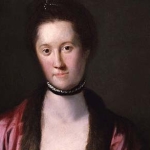'Because I am mad about women
I am mad about the hills,'
Said that wild old wicked man
Who travels where god wills.
'Not to die on the straw at home,
Those hands to close the eyes,
That is all I ask, my dear,
From the old man in the skies.
Daybreak and a candle-end.
'Kind are all your words, my dear,
Do not the rest withhold.
Who can know the year, my dear,
When an old man's blood grows cold?
I have what no young man can have
Because he loves too much.
Words I have that can pierce the heart,
But what can he do but touch?'
Daybreak and a candle-end.
Then said she to that wild old man,
his stout stick under his hand,
'Love to give or to withhold
Is not at my command.
I gave it all to an older man:
That old man in the skies.
Hands that are busy with His beads
can never close those eyes.'
Daybreak and a candle-end.
'Go your ways, O go your ways,
I choose another mark,
Girls down on the seashore
Who understand the dark;
Bawdy talk for the fishermen;
A dance for the fisher-lads;
When dark hangs upon the water
They turn down their beds.
Daybreak and a candle-end.
'A young man in the dark am I,
But a wild old man in the light,
That can make a cat laugh, or
Can touch by mother wit
Things hid in their marrow-bones
From time long passed away,
Hid from all those warty lads
That by their bodies lay.
Daybreak and a candle-end.
'All men live insuffering,
I know as few can know,
Whether they take the upper road
Or stay content on the low,
Rower bent in his row-boat
Or weaver bent at his loom,
Horseman erect upon horseback
Or child hid in the womb.
Daybreak and a candle-end.
'That some stream of lightning
From the old man in the skies
Can burn out that suffering
No right-taught man denies.
But a coarse old man am I,
I choose the second-best,
I forget it all a while
Upon a woman's breast.'
Daybreak and a candle-end.



















Comment form: